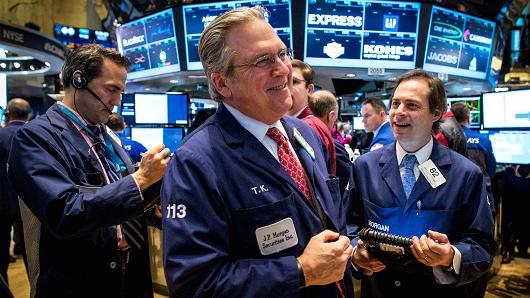
The U.S. is the best place for investors to put their money, according to Bessemer Trust’s Rebecca Patterson.
In fact, she said the U.S. market has been overweight from a combination of added stimulus from tax reform, a February spending package that filters into government agencies and global turmoil that benefits the U.S. market.
“We’ve found over the last few decades, when you have market panic, even if the U.S. causes the panic, the U.S. tends to outperform,” Patterson said Wednesday on “Fast Money.”
“Some of that is Americans bringing money home in times of stress, and we bring a lot of money home,” said Patterson, who serves as managing director and chief investment officer at Bessemer, a privately owned wealth management firm. “And it’s also that capital repatriation lifts the dollar,” she said.
The U.S. market fell sharply Tuesday with all three major indices closing lower. Amid concerns about Italy, the Dow Jones Industrial Average was down around 500 points at its lows. But the market rallied Wednesday as the Dow jumped more than 300 points and banks rebounded. The S&P 500 also rose, adding 1.27 percent and closing at 2,724.01. Even the small-cap Russell 2000 index hit a record, adding 1.5 percent and closing at 1,647.99.
In the European markets, the Stoxx Europe 600 and Italy’s FTSE MIB also rallied.
But Patterson pointed out that, in the last month, the FTSE MIB, the benchmark stock market index for the Borsa Italiana, the Italian National Stock Exchange, has been down about 10 percent.
“There’s a decent probability you get a populist government [in Italy],” Patterson said. “If you get a populist government, it would be very hard for the ECB, the central bank, to continue buying Italian bonds as part of its quantitative easing program.”
“I would prefer to put my money somewhere else right now,” she said.
And it’s not just Italy that Patterson expressed concerns about: The Japanese Nikkei 225 is down approximately 9 percent in the last month, and Brazil’s Bovespa is down about 13 percent since February.